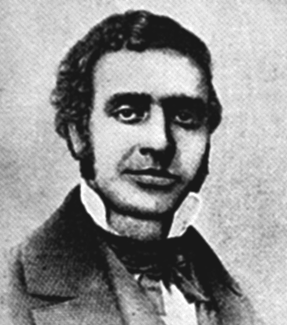Charles L. Reason was born on July 21, 1818 in New York City. His parents, Michiel and Elizabeth Reason, were immigrants from Haiti who arrived in the United States shortly after the Haitian Revolution of 1793. His parents emphasized the importance of education, and very early on the young Reason displayed an aptitude for mathematics when he was a student at the New York African Free School. Reason began his teaching career when he was 14 years old. He saved what he could of his teacher’s $25 per year salary to continue his own education with tutors. A political activist and abolitionist, Reason played a prominent role in the Negro Convention Movement in New York. In 1837 Reason joined Henry Highland Garnet, among others, in an effort to gain voting rights for African American men and he was later one of the co-authors of the Call for the New York Negro Convention of 1840.
Reason’s philosophy of education was founded on the presumption that industrial education (manual arts) was a pivotal means to African American freedom. Unlike Booker T. Washington, however, Reason saw the importance of both industrial and classical education and even started a normal school (teachers’ training college) in New York City. When the predominantly white Free Mission College (later renamed New York Central College) opened in Courtland County, New York in 1849, it admitted black students and hired Reason to serve on the faculty. In so doing, Reason became the first African American to teach at a predominantly white college. The magnitude of Reason’s appointment can be measured against the fact that prior to 1840 no more than 15 black students had attended white colleges. Reason, who was professor of belles lettres, Greek, Latin, French, and adjunct professor of mathematics at Central College, was joined by two other African American scholars in 1850, George B. Vashon and William Allen.
After three years at Central College, Reason left to assume the position of principal at the Institute for Colored Youth in Philadelphia, Pennsylvania. Founded in 1837, it was one of the best schools for African Americans in the country. Reason increased student enrollment, expanded the library holdings and exposed the students to outstanding African American intellectuals and leaders of that time.
Reason remained at the Institute for Colored Youth for three years and then returned to New York City where he became an administrator of schools in New York City. One of the high points of his career as a New York City educator was in leading the fight in 1873 to end racial segregation in the city’s public schools. A prolific writer, Reason wrote political journalism as well as poetry. His most noted poems are “Freedom” “The Spirit Voice” and “Silent Thoughts.” Charles L. Reason died in 1893.

